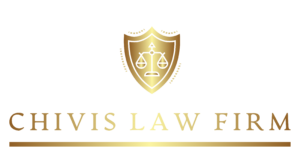Bankruptcy Law
Considering bankruptcy? Complete our consultation sheet below to get started.
Get Started
Texans seeking relief from escalating mortgage costs, unaffordable rent, or out-of-control credit card debt are encouraged to contact The Chivis Law Firm to schedule a consultation regarding any of the following financial and legal matters. Our office represents individuals in a variety of matters and would be happy to discuss any potential case or issues you may be facing.
Although filing for bankruptcy is never an easy decision, you do not need to make this decision alone. We understand the heavy burden of debt, and the relief that comes with a debt-free future. Because your needs are unique, before starting any legal action, we will take the time to review your debts and assets and create a timely and effective solution tailored to your particular situation. We will handle all the details of your case, and answer any and all questions or concerns you may have about the bankruptcy process.
Chapter 7 Bankruptcy
A Chapter 7 bankruptcy can result in your debt being immediately negated with no need to ever pay it off. In other words, you will get a fresh start. While a Chapter 7 will eliminate most of your debt, there are certain types of debt which cannot be eliminated by filing bankruptcy. We will discuss these details further during your initial consultation.
Some people are afraid that a bankruptcy will ruin their credit history. While it is true that filing a bankruptcy will typically have a negative impact your credit rating, for many people, declaring bankruptcy can actually raise the credit rating because the negative value of a bankruptcy is less than that of the high debt. In addition, there are many creditors that specifically offer credit to individuals who recently filed for bankruptcy, since recent filers have a “clean slate” and are therefore better able to pay future debts.
Bankruptcy may or may not be the best option for you. If you are being harassed by creditors, threatened with foreclosure, or just need help with your financial situation, please contact The Chivis Law Firm. We can help you navigate through your options and create a timely and effective solution tailored to your particular situation.
Get Started
Bankruptcy FAQ
Bankruptcy laws protect what you own. These are called “exemptions”. Most, if not all, of your assets (including automobiles and certain amounts of equity in your home) are “exempt” allowing you to keep everything and lose nothing. In a typical Chapter 7 Bankruptcy, filed through our office, you will lose nothing. In Chapter 13 (Debt Consolidation) you keep all the assets you choose because your debts are paid off or wiped out.
Once we file your petition, the law requires your creditors deal with us and leave you alone.
Yes. Any wage garnishment must immediately stop when we file your case.
Yes, but it is nothing to worry about because an attorney will be present to represent you. Only one hearing is required approximately 30 to 35 days after filing. This is normally a very short hearing called a “341a Meeting of the Creditors”. While many times no creditors appear, it is possible that one or more of your creditors may be present to ask questions.
Chapter 7 or a Chapter 13 Bankruptcy remains on your credit report for up to 10 years. However, you can immediately begin re-establishing your credit after your case is filed. Due to the fact that you are wiping out your debts and cannot file again for 8 years, credit companies want to be first in line to extend credit to you again. By not filing Bankruptcy, your credit report may show negative information for 7 years from the time you become current. By filing, negative reporting stops immediately. This allows you to begin re-establishing credit faster by keeping house, auto or other payments current.
Yes. No one can repossess your auto after your case is filed.
No, but because Texas is a community property state, your debts are usually your spouses debts. Creditors may pursue your spouse (or ex-spouse) for the entire community debt.
In either a Chapter 7 or Chapter 13 Bankruptcy, you must obtain court permission to sell or refinance your home. After discharge, you may immediately assume a sellers loan or, after two (2) years, possibly qualify for a new home loan using your re-established credit record.
After discharge, you may immediately assume a sellers loan or, after about two (2) years, you may possibly qualify for a new home loan (depending on your income and your re-established credit record). Additionally, there are many mortgage lenders who specialize in extending credit to those people who file Bankruptcy.
Yes. In a Chapter 13 case, we can permanently stop foreclosure by proposing a plan whereby you come current over time and continue to make the regular monthly mortgage payment. In a Chapter 7 case, if you are not current on your payments, the Bankruptcy will postpone the foreclosure until your case is dismissed or until your creditor/mortgage holder files a motion for, and is granted, “Relief From Stay”.
A Chapter 7 Bankruptcy will eliminate most all unsecured debts (credit cards, loans) but not secured debts such as your car or home. To keep your car and home, payments must kept current. In a Chapter 13 case you pay all or only a portion of your debts, depending on how much disposable income you have each month.
Yes. You must list all creditors at filing except accounts with a zero balance. If you no longer owe an individual or company money, they are not a creditor. Our office will assist you in obtaining a credit report so that you are certain to list all your creditors.
If the lien was not incurred to purchase the asset, was not consensual, and impairs your ownership interest in property (an exemption), it may be possible to have the lien removed by using lien avoidance techniques.
If there is enough money left over after monthly living expenses the court may require full or partial payment to your creditors in a Chapter 13 debt consolidation.
All consumer co-signors are protected under a Chapter 13 case. However, co-signors are still liable and creditors can attempt to collect against them in a Chapter 7 case.
No, unless your employer is also a creditor or you authorize a wage deduction in a Chapter 13 case. Your payroll department would have to be notified of your filing in order to stop a wage garnishment.
No, unless you have been evicted or are moving and need to include your landlord as a creditor in your Bankruptcy.
Typically not. However, if you owe your bank or credit union money (your bank or credit union is an unsecured creditor), close the account and move to a bank where you owe nothing. Otherwise, at time of filing, your bank could offset or freeze your account.
Yes, immediately when we file your case.
Chapter 7 bankruptcy allows 1 discharge every 8 years. Chapter 13 Bankruptcy lets you file as often as needed, if filed in good faith and 70% of unsecured debts were paid in a previously discharged Chapter 13.
In a Chapter 13 case you pay back child and spousal support in full, without further interest, in your payment plan. In a Chapter 7 case, child and spousal support is not dischargeable.
In a Chapter 13 Bankruptcy you pay back taxes without interest, or further penalties over the course of your payment plan. In Chapter 7 – Bankruptcy, secured taxes, such as property taxes, cannot be discharged. However, unsecured, personal income taxes may be discharged if the taxes are 3 years old, you filed timely, you have not been assessed the taxes in the prior 240 days and you have not entered into a written “offer in compromise” to settle the debt.
In a Chapter 13 Bankruptcy you can pay student loans in your payment plan. In Chapter 7 Bankruptcy, student loans are generally not dischargeable (there are some rare instances where an extreme hardship may render student loans dischargeable).
No, not until you receive your discharge notice. In Chapter 13 – Debt Consolidation you must get court permission to incur debt over $250, except in emergencies.
Chapter 7 Bankruptcy usually takes about 4-5 months, although your creditors cannot attempt to collect on the debts once your case is filed. A Chapter 13 case takes from 3 to 5 years to complete.
Outstanding Firm
Mr. Chivis and his team were an outstanding firm to help guide us through an automobile accident. From the initial conversation I felt comfortable with the process. His team was always in contact with us and assured us that the process was moving forward. Two years went by and our case was finally settled. Even though we live in Houston…Mr Chivis and his team were able to assist us from San Antonio. Thank you Mr. Chivis and Team!
Above and Beyond
The Chivis Law Firm helped us and kept us informed every step of the way. Any and all questions were answered clearly and their patience and professionalism is absolutely above and beyond. We definitely made a great choice by hiring them in our time of need.
Top Tier Representation
Efficient, Productive, Reliable, and a successful outcome. Thank you Chivis Law Firm. Top Tier Representation.



